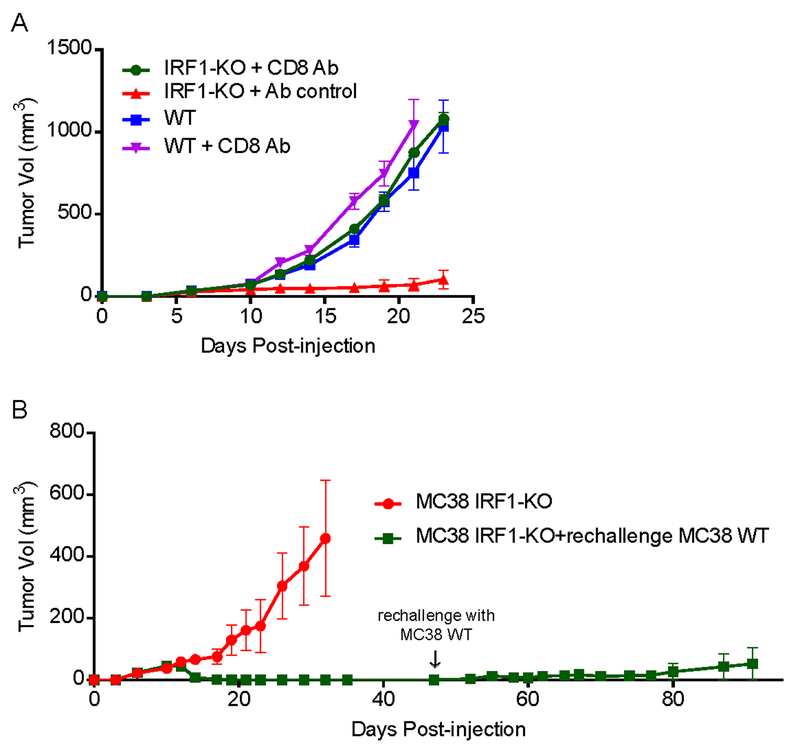Fig. 2: Host CD8+ T cells are required for the loss of tumorigenicity in IRF1-deficient tumor cells.
(A) Tumor growth of MC38 IRF1-KO cells in CD8+ T-cell depletion C57BL/6 mice. 106 of MC38 WT or IRF1-KO cells were subcutaneously injected into C57BL/6 mice (n=8). IRF1-KO cell injection groups of mice were intraperitoneally injected with 250 μg of anti-CD8 or rat IgG2b isotype control 2-day before tumor cell injection, then followed by antibody or isotype control injections twice a week. A group of WT MC38 cell injected mice were intraperitoneally injected with anti-CD8 as control. Representative results from at least twice repeated experiments are shown.
(B) MC38 IRF1-KO cells induced WT tumor regression. Following complete regression of MC38 IRF-1 KO tumors (n=8), mice were re-challenged with MC38 WT tumor cells on day 47 of post-injection. 7 out of 8 mice showed complete tumor regression. Representative results from at least twice repeated experiments are shown.

